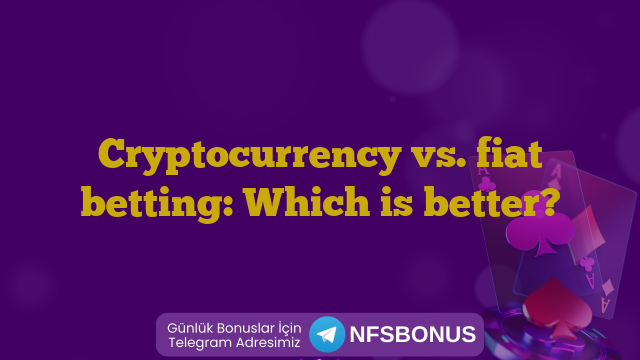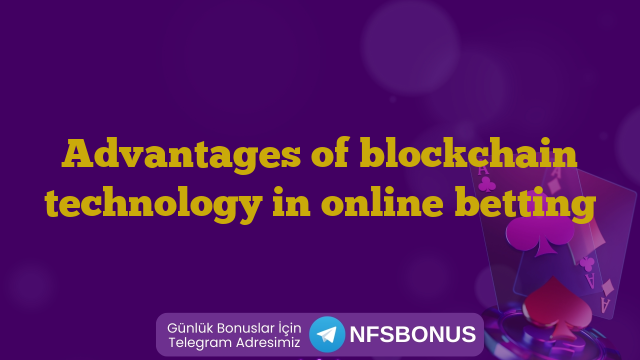In recent years, the online betting industry has undergone a profound transformation, driven by the revolutionary technology of blockchain. As a decentralized ledger system, blockchain not only enhances the transparency and security of online transactions but also fosters trust among users—an essential element in the betting world. From the emergence of smart contracts that automate and streamline operations, to the drastic reduction in transaction fees and improvements in user privacy, blockchain is redefining how bets are placed and managed. This article explores the multifaceted impact of blockchain on online betting, highlighting its innovative features, benefits, and the promise of a decentralized future that can elevate user experiences like never before. Join us as we delve into how this groundbreaking technology is shaping the next era of online betting.
Understanding How Blockchain Works in Online Betting
How blockchain technology is revolutionizing the online betting industry can be understood through its foundational characteristics, such as decentralization, transparency, and immutability. Unlike traditional systems that rely on centralized servers and authority, blockchain operates on a distributed ledger framework. This means that every transaction is recorded on multiple nodes or computers simultaneously, creating a robust and resilient system that is less prone to manipulation or fraud.
When a user places a bet on a blockchain-based platform, the details of the transaction are validated and encrypted, then added to a block. Once this block is filled with a set number of transactions, it is permanently linked to the previous block, forming a chain. This process ensures that all bets are securely logged, and any attempt to alter previous transactions would require an enormous amount of computational power—making it virtually impossible.
Moreover, blockchain enhances user experience and trust through real-time visibility of the betting process. Participants can easily track their bets and winnings, knowing that the information cannot be tampered with. This level of accountability is crucial in an industry often scrutinized for unfair practices and biased outcomes.
how blockchain works in online betting is characterized by its decentralized nature, enhanced security measures, and transparency features, creating a trustworthy environment for bettors while potentially transforming the entire industry landscape.
The Development of Smart Contracts in Betting Platforms
One of the most significant innovations in the online betting industry made possible by blockchain technology is the development of smart contracts. These self-executing contracts with the terms of the agreement directly written into code have transformed how bets are placed and processed.
Smart contracts operate on decentralized blockchain networks, ensuring that all transactions are transparent, immutable, and executed automatically. This technology eliminates the need for intermediaries, which can often slow down transactions and add additional fees. Bettors can now engage in wagering with confidence, knowing that their bets will be executed as per the agreed conditions without any potential for manipulation by third parties.
For instance, in traditional betting systems, disputes often arise over whether a bet was correctly placed or won, leading to lengthy resolution processes. With smart contracts, the entire betting process—from wager placement to payouts—is documented on the blockchain, providing a clear and verifiable trail of all actions taken. In case of any disputes, the records can easily be accessed and reviewed, leading to faster and more equitable resolutions.
Furthermore, smart contracts can be tailored to automate payouts based on pre-defined conditions, making them suitable for a wide range of betting scenarios, including complex multi-bet combinations or conditional bets. This flexibility allows betting platforms to innovate and offer unique betting experiences that cater to a diverse audience.
As the online betting landscape continues to evolve, the role of smart contracts as a crucial component in the operations of betting platforms cannot be overstated. They not only provide a seamless betting experience but also enhance the trust and reliability that are essential for retaining users in a competitive market.
How Blockchain Enhances Security for Bettors
In the realm of online betting, security is paramount. As the industry evolves, how blockchain technology is integrated provides a revolutionary solution to longstanding security concerns. By leveraging the unique characteristics of blockchain, betting platforms can significantly enhance the security for their users.
One of the key features of blockchain is its decentralized nature. Unlike traditional centralized databases, where a single point of failure can lead to catastrophic breaches, blockchain distributes data across a network of computers. This means that hacking into a single server is no longer sufficient to compromise the system. Instead, any would-be attackers would need to manipulate numerous nodes simultaneously, which is a daunting challenge.
Additionally, the cryptographic techniques employed in blockchain add an extra layer of protection. Every transaction is encrypted and linked to previous transactions, creating an immutable chain. This ensures that once a transaction is recorded, it cannot be altered or erased, thereby increasing trust among users.
Furthermore, blockchain enhances user identity verification. Traditional betting platforms can suffer from identity theft and fraudulent accounts, but with blockchain, bettors can use secure digital identities. This not only minimizes the risk of fraud but also fosters a safer environment for players.
Betting operators can also implement advanced features such as multi-signature wallets, which require multiple approvals for transactions. This multi-layered approach ensures that even in scenarios of account takeover, unauthorized transactions can be prevented.
The integration of blockchain technology fundamentally alters how blockchain is redefining security measures in online betting. By ensuring data integrity, enhancing user anonymity, and minimizing fraud, it paves the way for a more secure betting environment, fostering greater trust among users and enabling the industry to thrive.
Developing Transparency in Betting Transactions via Blockchain
The integration of blockchain technology in the online betting industry is fundamentally reshaping how transparency is fostered within betting transactions. One of the most significant advantages of using blockchain is its inherent characteristics of immutability and decentralization, which ensure that all transactions are recorded in a manner that is tamper-proof and publicly accessible.
Traditional betting platforms often rely on centralized databases, creating opportunities for fraud, manipulation, and a lack of trust among users. In contrast, blockchain allows for a transparent ledger that provides real-time insights into all transactional activities. Bettors can verify the authenticity of bets placed, payouts processed, and the overall integrity of the platform.
By employing how blockchain technology works, betting operators can present verifiable data to their users. For instance, every wager placed on a blockchain-based betting site can be traced back to its origin, enabling bettors to track their activities and outcomes. This level of transparency helps eradicate doubts about the fairness of the betting process and builds a more trustworthy relationship between operators and players.
Moreover, users can engage with self-executing smart contracts that automate and enforce the terms of bets without the need for a central authority. This not only streamlines the betting process but also offers bettors the assurance that their funds and bets are managed responsibly and securely. The incorporation of how blockchain enhances transparency and assures users that they are participating in a fair betting environment, ultimately leading to higher customer satisfaction and retention rates.
The Result of Reduced Transaction Fees with Blockchain
One of the most significant advantages of implementing blockchain technology in online betting is the potential for reduced transaction fees. Traditional betting platforms often involve multiple intermediaries, such as banks and payment processors, which can lead to high fees for both operators and bettors. However, blockchain technology allows for peer-to-peer transactions, eliminating the need for these intermediaries.
By using cryptocurrencies or blockchain-based payment systems, operators can greatly decrease costs associated with processing transactions. This reduced fee structure benefits both the operators, who can keep more of their revenue, and the end users, who experience lower fees on bets. Lower transaction fees can be particularly advantageous for smaller bets, enabling more casual bettors to participate without worrying about excessive costs eating into their potential winnings.
Moreover, blockchain’s ability to process transactions in real-time contributes to quicker payouts, enhancing the overall betting experience. As transaction times decrease and fees drop, bettors are more likely to engage in frequent wagering, creating a vibrant and dynamic betting ecosystem.
The shift towards a blockchain-integrated model in the betting industry can be viewed as a progressive step, driving both efficiency and accessibility. As a result, how blockchain is transforming online betting is not just a matter of technology; it is fundamentally altering the financial landscape for users and operators alike.
How Blockchain Improves User Privacy in Online Betting
In the digital age, concerns about privacy are increasingly paramount, especially in the online betting industry, where sensitive information is often required for account creation and wagering. How blockchain technology addresses these concerns has become a pivotal topic among operators and users alike.
One of the primary advantages that blockchain offers is the ability to anonymize transactions. Unlike traditional betting platforms that require users to provide extensive personal information, blockchain enables transactions to happen through cryptographic addresses instead of identifiable information. This means bettors can enjoy their activities without exposing sensitive data to third parties.
Furthermore, decentralized systems enhance privacy by eliminating single points of failure. In a centralized environment, user data is stored on servers that can be targeted by hackers. By contrast, blockchain technology disperses data across its network. This distribution dramatically reduces the risk of large-scale data breaches that can compromise user information.
Additionally, since transactions on a blockchain are recorded in a public ledger, users can verify their betting history without revealing their identities. This form of transparency allows bettors to maintain confidence in the system while safeguarding their anonymity. In essence, how blockchain empowers individuals to engage in betting activities privately is transforming user experiences in the industry.
The integration of blockchain technology in the online betting sector stands to significantly elevate user privacy, allowing bettors to participate in a secure, anonymous, and trustworthy environment. As the industry continues to evolve, the importance of privacy in online betting will likely push more platforms to adopt blockchain solutions to meet consumer demands.
The Future Development of Decentralized Betting Systems
The evolution of betting systems is poised to undergo a significant transformation with the advent of decentralized technologies. As more players and operators recognize the benefits of blockchain, the industry will likely see a shift towards how blockchain facilitates decentralized betting systems, allowing users to operate without the constraints of traditional intermediaries.
Decentralized betting platforms utilize smart contracts to automate the betting process, ensuring that all agreements are executed fairly and transparently. This shift not only minimizes the risk of fraud but also enhances user trust, as players can verify outcomes and transactions on the blockchain. With no single entity controlling the system, bettors can engage in peer-to-peer betting without fearing manipulation or unfair practices.
Moreover, the integration of decentralized finance (DeFi) within these platforms is expected to revolutionize liquidity options. Users can stake their cryptocurrencies or engage in liquidity pools, earning rewards while supporting bets. This synergy between DeFi and decentralized betting will not only create new revenue streams for users but will also foster a more inclusive betting ecosystem.
As regulations around blockchain technology continue to mature, decentralized betting systems are likely to gain broader acceptance among international markets. Innovative approaches, such as the use of oracles to validate external data and event outcomes, will further solidify the reliability of these platforms, thereby attracting a more extensive user base.
The future of decentralized betting systems driven by how blockchain technology operates will enhance player autonomy, ushering in a new era for online betting that prioritizes user experience, security, and transparency.
Innovative Ways Blockchain is Changing User Experience in Betting
As the online betting industry evolves, how blockchain integrates with user-centric features is becoming increasingly clear. By leveraging the strengths of blockchain technology, platforms are revolutionizing the user experience in numerous innovative ways:
These features illustrate how how blockchain is reshaping the user experience in the betting industry. As technology continues to advance, we can expect even more innovative solutions that enhance engagement, security, and satisfaction for bettors worldwide.





